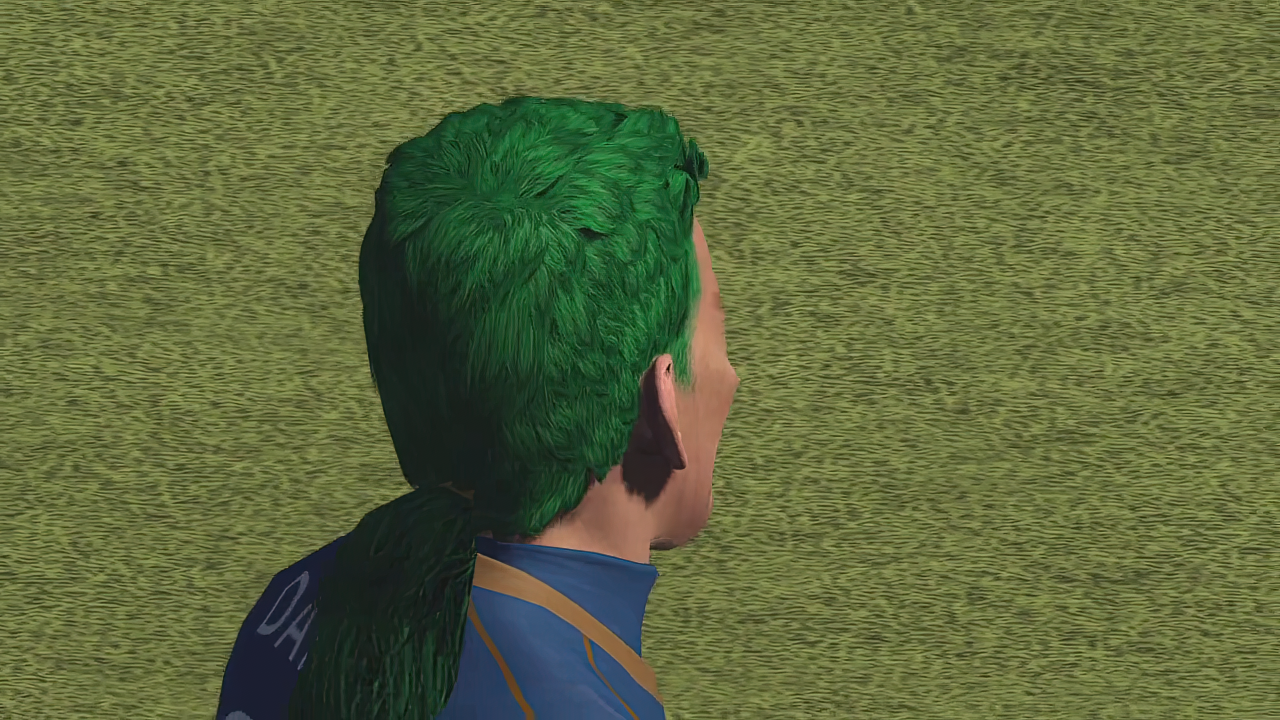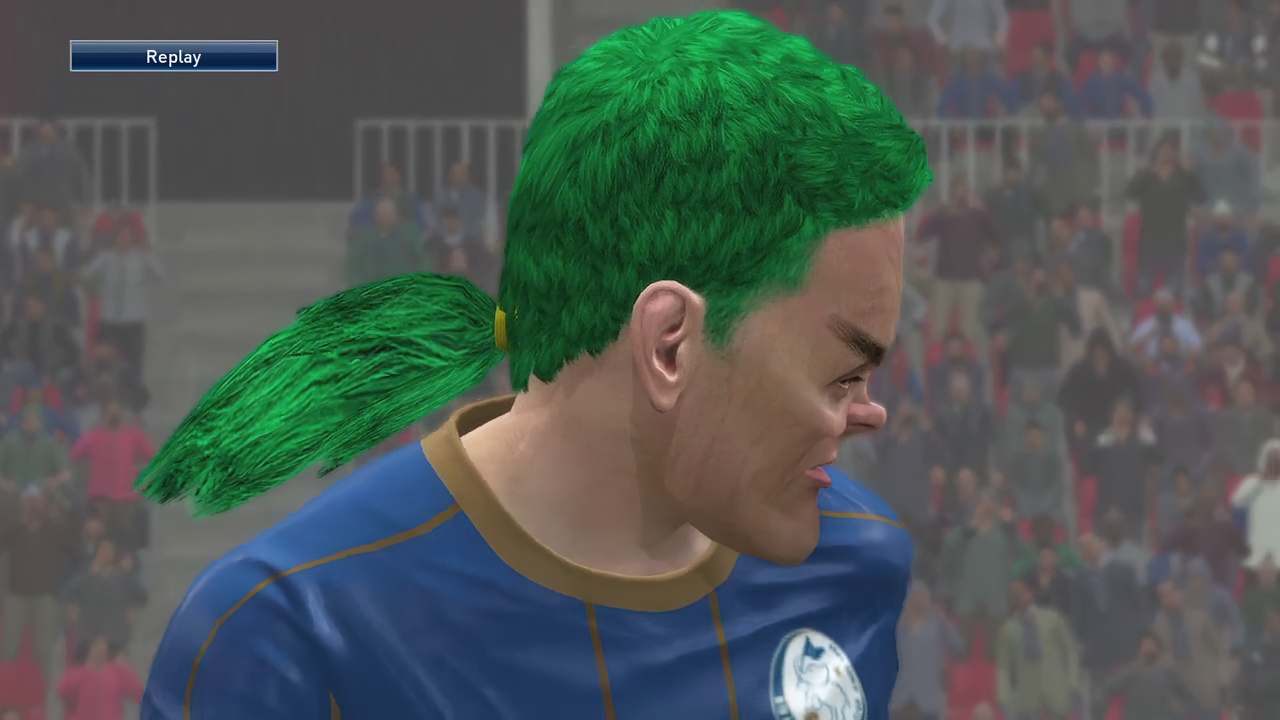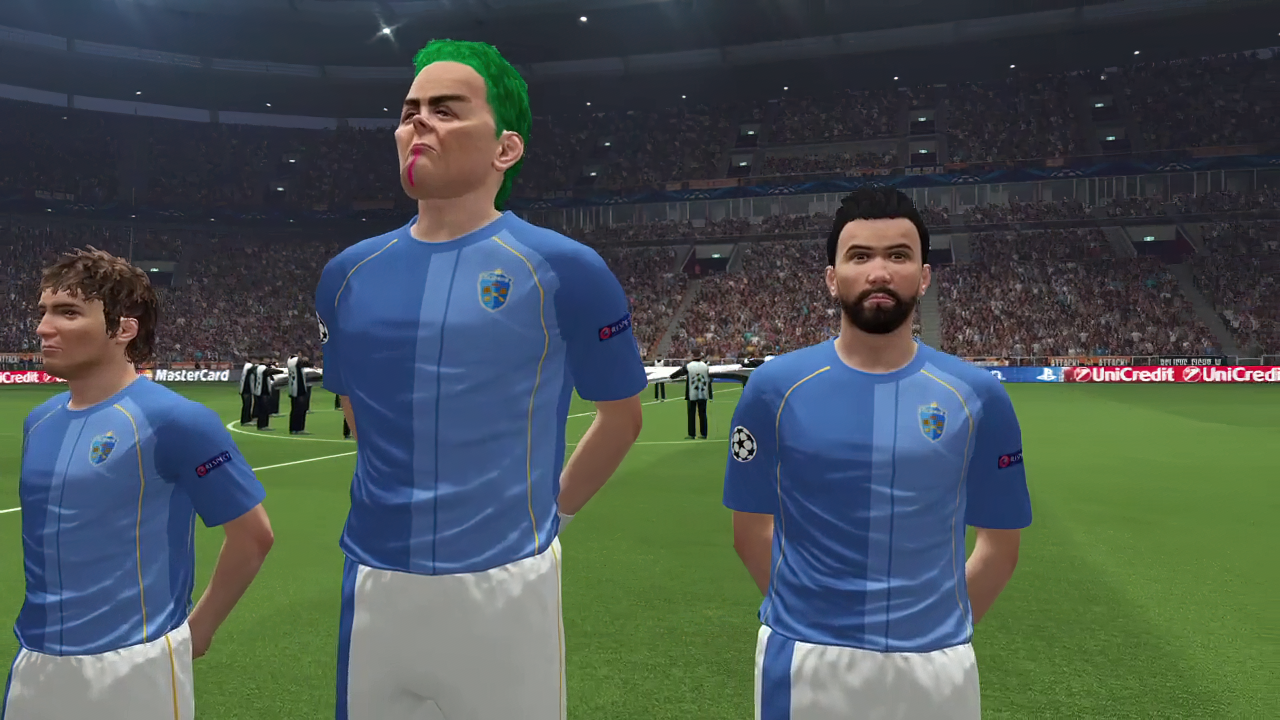PATREON-EXCLUSIVE CONTENT
〰️
PATREON-EXCLUSIVE CONTENT 〰️
VRAL is currently exhibiting Juan Obando’s Pro Revolution Soccer, a modded version of Konami’s popular soccer game celebrating a counter-historical event: a match between Inter Milan and the Zapatista Army of National Liberation soccer team that never took place. Today, we are presenting another example of Game Art made by hijacking, appropriating and recontextualizing Pro Evolution Soccer, Gweni Llwyd and Owen Davies’s Becoming a Legend (2020), which was originally exhibited on VRAL and it is now available on the artists’ website In this article, we revisit Becoming a Legend and we discuss the difference between avant-garde and vernacular machinima through the lens of Rebecca Cannon’s seminal essay, Meltdown (2006). This article is part of an ongoing series.
In a 2020 interview with Luca Miranda, artists Gweni Llwyd and Owen Davies discuss the creation of Becoming a Legend, whose genesis was inspired by their love for football video games and their inspiration from documentaries and other machinima works. The artists explain their use of Pro Evolution Soccer as they felt it was better suited to their original concept. Among other things, they preferred the mechanics of PES’s replay camera and found its visual aesthetic to be more otherworldly compared to the stricter dedication to realism of Konami’s main competitor FIFA, EA Sports’s popular football game. They also mentioned that using an out-of-date version of PES, the 2015 edition, gave the footage a slightly nostalgic feel, which aligned with their artistic vision. Furthermore, the artists appreciated the lack of licensing in PES compared to FIFA. They found it intriguing to have the action take place around fictional teams with strange names, which added a mythical quality to their artwork. This choice allowed them to create a unique atmosphere and contribute to the portrayal of their godlike, menacing but also comic-like figure, Da Man!.
Llwyd and Davies also examine the culture of football and the obsession with physical optimization, which is reflected in their portrayal of the grotesque character Da Man!. They explore the concept of self-optimization and its connection to neoliberalism, highlighting the constant pressure to improve and be productive. The artists suggest that video games, including football games, contribute to this ideology by rewarding player participation with symbolic rewards.
Matteo Bittanti
This is a Patreon exclusive content. To access it consider joining our growing community.





